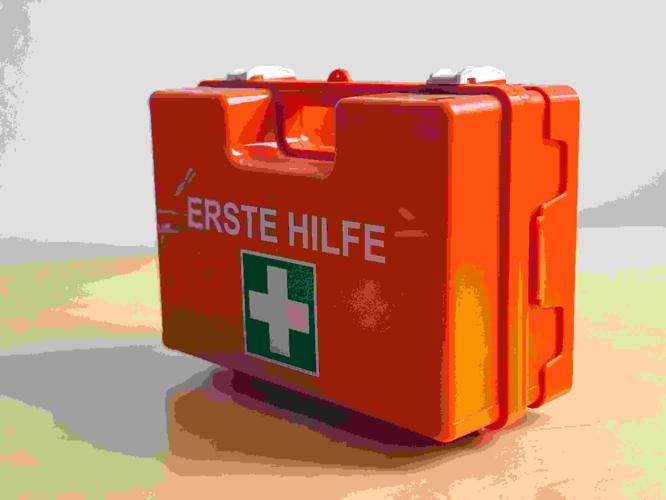
Having a well-equipped medical supply kit at home is extremely important. These kits can greatly help in times of accidents or sudden illnesses that may arise unexpectedly and require attention and care from individuals without any professional healthcare background or experience. Essential medical supplies are vital for all households to ensure preparedness for emergencies that may occur.
Let’s take a look at some essential medical supplies every home should have.
First Aid Kit Essentials
Having a first aid kit is essential for any household. The kit should have bandages, adhesive tape in different sizes, wipes, and antibiotic cream. Including gauze pads and rolls can be helpful for managing wounds. Scissors and tweezers are vital tools for taking out splinters or cutting bandages. In addition to these items, adding gloves will offer protection against infections. For those looking to expand their kit, there are various medical supplies for salethat can help ensure you’re well-prepared for emergencies.
Pain and Fever Management
Painkillers, like acetaminophen and ibuprofen, ease pain and effectively lower fever levels. They are useful in relieving headaches and muscle pains, among other health issues. Medical supplies, such as thermometers, are tools for tracking body temperature changes to monitor fevers properly. Digital thermometers are commonly favored due to their user-friendly nature and fast temperature readings.
Allergy and Cold Relief
At any moment, allergies or cold symptoms may appear unexpectedly, so it is crucial to keep remedies for relief. Antihistamines can ease allergy symptoms such as sneezing and itching, while decongestants are effective in combating congestion associated with cold viruses. For cough relief, consider trying cough suppressants, and for soothing dryness and irritation in the passages, use saline nasal spray.
Wound Care and Infection Prevention
Proper wound care is essential to avoid infections and help them heal faster. Hydrogen peroxide and antiseptic solutions are effective in cleaning wounds. Bandages and sterile dressings can protect cuts and scrapes by keeping them clean. Applying ointment can help prevent infections. It's important to know how to clean and dress wounds for treatment.
Digestive Health Supplies
Digestive problems can arise unexpectedly, so it's essential to have remedies on hand for relief. Antacids combat stomach acid and alleviate heartburn. Laxatives aid in constipation. Diarrheal medications offer respite from diarrhea. Rehydration solutions help replenish lost electrolytes after vomiting or diarrhea bouts. Probiotics promote well-being and enhance immune system strength.
Burn Relief Products
Burn injuries are frequently seen in homes. It's important to have remedies at hand when needed. Aloe vera gel is effective in calming burns and keeping the skin hydrated. Burn creams that include lidocaine or hydrocortisone provide relief from pain and help decrease inflammation. Stick dressings can safeguard the burnt areas without sticking to the skin too tightly and can make changing dressings less uncomfortable.
Eye Care Essentials
Eye injuries or irritations can cause discomfort and disturbances in life. Using saline eye wash solutions can help cleanse the eyes and get rid of any foreign particles that may be present there. For dryness and irritation, lubricating eye drops can provide relief, while eye patches serve to protect injured eyes and support the healing process. It's important to have these essentials available for attention to any eye-related issues that may arise.
Additional Supplies for Special Needs
Families with members who have special conditions might need extra items on hand. Different things are necessary for people with diabetes, like glucose monitors and test strips. For those with asthma, having inhalers or nebulizers is helpful. It's important for individuals with allergies to have access to epinephrine auto-injectors. Ensuring each person's needs are met is key to being prepared.
Emergency Contact Information
Keeping a list of emergency contacts is key. Make sure to include family members' numbers alongside your primary care physician and local emergency services contacts in this list. Having it posted in an easy-to-see spot helps ensure access when needed the most. Remember, clear communication can be just as crucial as having the necessary supplies ready to go.
Regular Inventory Checks
It's important to monitor the supplies to stay prepared for any situation, especially by replacing expired or damaged items promptly and using a checklist to keep track of what needs restocking in an organized space dedicated to supplies. This makes it easier to find things quickly when needed during emergencies, as preparedness demands consistent care and upkeep.

It's important to have medical supplies at home so that households can effectively deal with different medical scenarios they might face. The supplies range from first-aid items to specialized products tailored to specific needs, each playing a crucial role in safeguarding health and well-being. Regularly keeping these supplies up-to-date and well-maintained helps homes be ready for emergencies with a sense of readiness and assurance.





(0) comments
We welcome your comments
Log In
Post a comment as Guest
Keep it Clean. Please avoid obscene, vulgar, lewd, racist or sexually-oriented language.
PLEASE TURN OFF YOUR CAPS LOCK.
Don't Threaten. Threats of harming another person will not be tolerated.
Be Truthful. Don't knowingly lie about anyone or anything.
Be Nice. No racism, sexism or any sort of -ism that is degrading to another person.
Be Proactive. Use the 'Report' link on each comment to let us know of abusive posts.
Share with Us. We'd love to hear eyewitness accounts, the history behind an article.